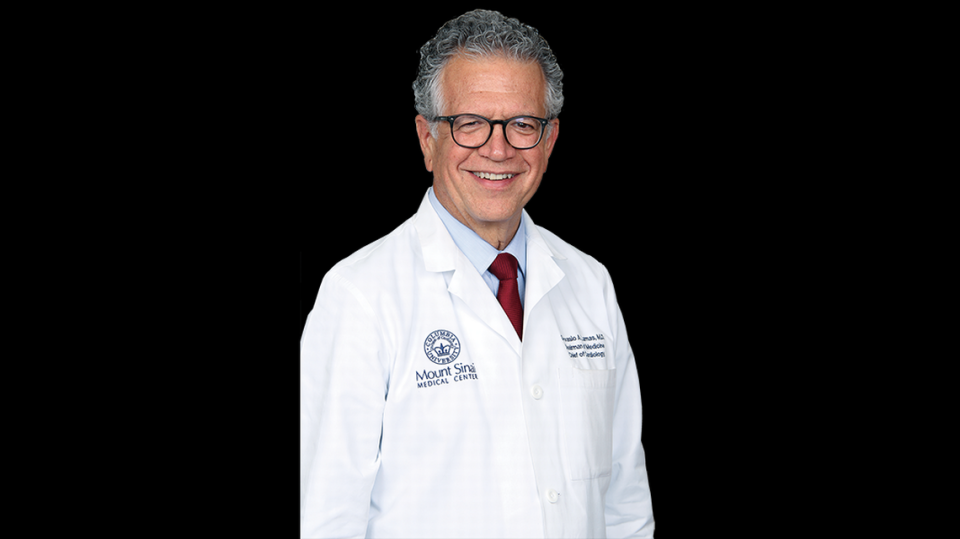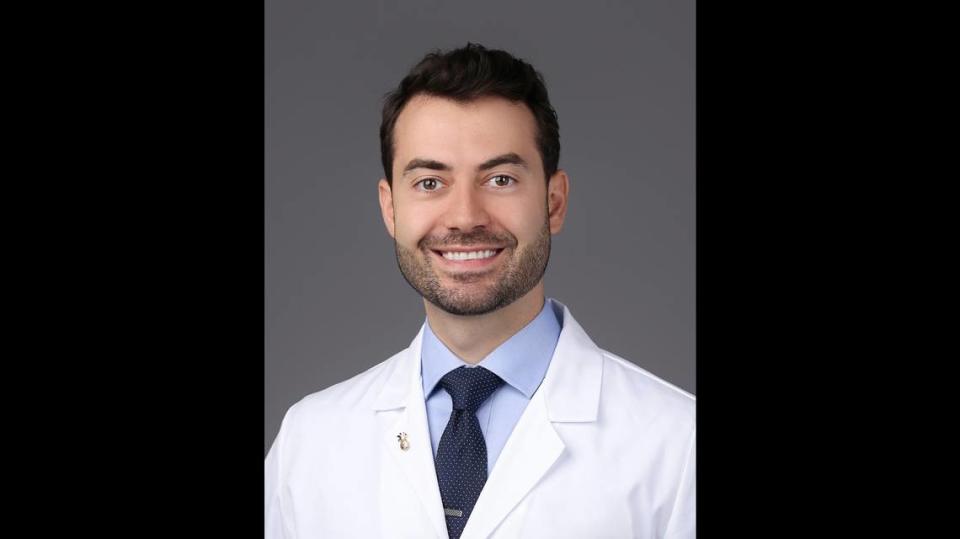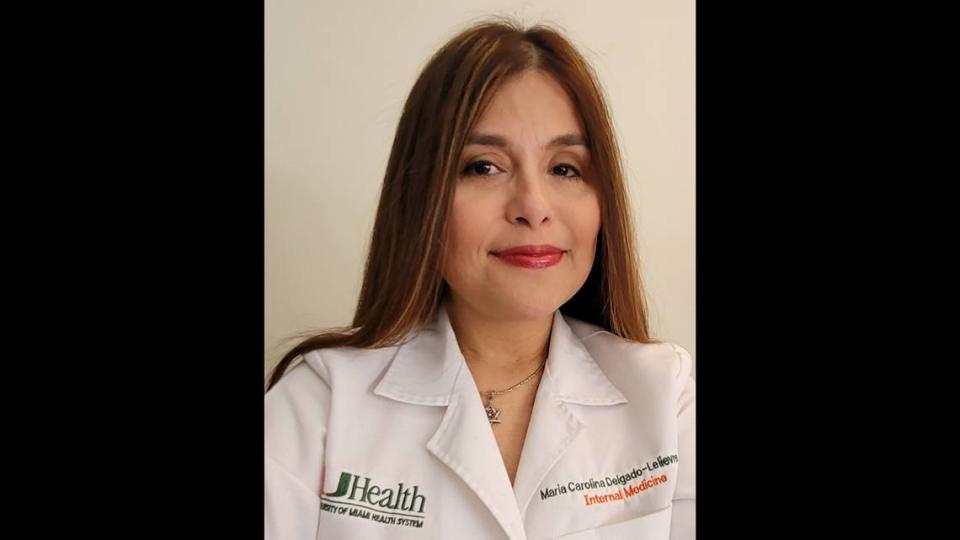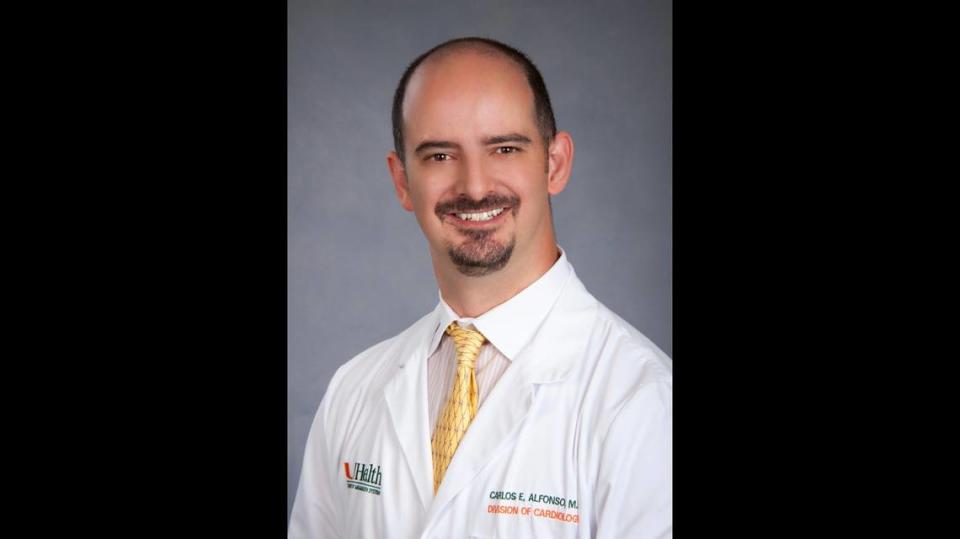Here are the three big things you need to know about getting your blood pressure down
Hypertension, or high blood pressure, can often go unnoticed in people who have it, and yet the consequences of leaving it untreated can lead to serious health problems, even death.
“High blood pressure increases the risk of stroke, kidney failure and heart attacks,” says Dr. Gervasio Lamas, chief of the Columbia University Division of Cardiology at Mount Sinai Medical Center in Miami Beach.
“You have to be your own advocate,” he advises, “so it’s important to monitor your own blood pressure.”

Blood pressure is the force that a person’s blood exerts against the artery walls. When a person has high blood pressure, it makes it harder for the heart to circulate the blood, which is critical to feeding the body’s organs.
People can often get free blood pressure readings done at drug stores such as CVS and Walgreens and even at supermarkets, such as Publix. Or you can buy a blood pressure monitor for home use for about $25.
“Do not accept a high blood pressure; make sure your doctor treats it,” Lamas warns.
Understanding the two numbers of a blood pressure reading
The American Heart Association defines Stage I hypertension when blood pressure values are greater than 130/80.
The first number, called systolic blood pressure, measures the pressure in your arteries when your heart beats. The second number, called diastolic blood pressure, measures the pressure in your arteries when your heart rests between beats, according to the Centers for Disease Control and Prevention (CDC).
“The lower number is less important after age 50, because it naturally goes down as the arteries grow stiffer with age,” says Lamas. “I follow the high number on my patients.”
Link between stress and hypertension
Dr. Sergiu Darabant, a medical cardiologist at Baptist Health South Florida’s Miami Cardiac & Vascular Institute, says that stress can lead to significant blood pressure fluctuations because of unhealthy eating habits, disturbed sleep and anxiety.

He adds that a high sodium diet, excessive alcohol consumption and physical inactivity increase the risk of hypertension.
“A healthy daily routine is key to lowering blood pressure,” says Darabant. “I recommend daily physical activity and a generous sleep schedule. Nutrition is also paramount. I encourage my patients to focus on eating three healthy meals a day which contain large portions of fruits and vegetables,” he says.
He cautions that most common snacks contain a lot of sodium, so he advises avoiding snacking in-between meals.
“Uncontrolled, elevated blood pressure is one of the leading risk factors for heart attacks, stroke and heart failure,” says Darabant.
High blood pressure can cause early heart attacks
Elevated blood pressure puts unnecessary stress on the inner lining of arteries.
“In time, this leads to narrowing of our heart arteries and extra cholesterol deposits within our blood vessels,” says Darabant. “These changes can cause early heart attacks and take years off our life,
“Healthy blood pressure is an investment in our present and future health; it is a risk factor that we have the chance to control with early diagnosis, treatment and lifestyle changes,” he says.
Signs of high blood pressure
Most of the time, people do not know that they have elevated blood pressure unless it is really elevated and even then, the symptoms aren’t always specific.
“Symptoms can include headaches, a thumping heartbeat, and shortness of breath or even chest pain,” he says.
“Measuring blood pressure using a blood pressure machine is the best screening and diagnostic method,” says Darabant, echoing Lamas.
According to the U.S. Centers for Disease Control and Prevention, 77% of first-time patients who have a stroke and 69% of patients who have a heart attack were already suffering from hypertension and didn’t know it.
Men at higher risk for hypertension
The CDC also states that a greater percentage of men (47%) have high blood pressure compared to women (43%).
Also, high blood pressure is more common in Black non-Hispanic adults (54%) than in white non-Hispanic adults (46%), Asian non-Hispanic adults (39%), or Hispanic adults (36%), according to the CDC.
A year and a half ago, Preston Pugh, a man in his 40s who lives in Midtown Miami and who works in human resources, went to his dentist for teeth cleaning. When he arrived, the dental hygienist took his blood pressure, which was standard.
He said the look on her face said it all while she was doing the reading.
“That was my first indication that something was wrong,” he said of the revelation that he had high blood pressure.
Pugh said that up until then, he had felt relatively healthy but had been having severe headaches.
“There aren’t that many indicators that would lead you to say that something is wrong,” he said regarding the symptoms — or lack of symptoms of hypertension, which he was eventually diagnosed with.
“They call it the silent killer for a reason,” he warned.
Poor diet, too much alcohol, lack of exercise will boost your blood pressure
His co-worker connected him with Dr. Maria Carolina Delgado-Lelievre, assistant professor of medicine and director of the University of Miami Comprehensive Hypertension Center.

He learned that genetics and lifestyle choices can have a big impact on one’s susceptibility to develop hypertension.
“It definitely made me reevaluate my relationship with food,” he said. “Definitely salt is a no-no. One of my guilty pleasures was potato chips.
“I eat more fruits and vegetables now. I drink more water and I try to get more rest,” Pugh says.
He says he makes a habit of trying to exercise, too. He also monitors his own blood pressure and takes anti-hypertension medication.
His advice to others: “Pay attention to your body. Your body is your best indicator of what’s going on,” he says. “Also, get your health checked. Get a complete physical and find a doctor who you trust.”
He also recommends that people familiarize themselves with their family history, to see if high blood pressure runs in their family.
Blood pressure medications safe for COVID-19 patients, UM study finds
Heart and hypertension experts with the University of Miami Miller School recently conducted a study showing that medications to treat high blood pressure do not affect outcomes of patients hospitalized with COVID-19.
In the REPLACE COVID trial, UM physician-researchers enrolled 152 participants who were hospitalized with COVID-19 from across several countries between March 31 and Aug. 20, 2020.
The participants were already using one of the medications to treat high blood pressure, which were being tested in the study: ACE inhibitors (ACEIs) or Angiotensin Receptor Blockers (ARBs).
Investigators examined whether the two classes of medications could help mitigate complications or lead to more severe COVID-19 symptoms.
The participants were randomly assigned to either stop taking their prescribed medication or continue taking it. They were closely monitored to evaluate the effect of temporarily stopping their medications.
“This was a randomized controlled trial and the strongest evidence to prove that these heart medications are safe,” said Carlos Alfonso, M.D., an interventional cardiologist and associate professor of medicine with the Miller School of Medicine and director of the cardiology fellowship training program at UM/Jackson Memorial Hospital.

Alfonso was a co-author of the study, published recently in The Lancet.
“More than 50 percent of adults in the U.S. have hypertension, the number one risk for heart disease,” said Delgado-Lelievre. “So it was very important to establish that these medications do not change an individual’s risk for COVID.”
Delgado-Lelievre said that medications to control blood pressure actually have a protective effect on the heart muscle, kidneys and overall vascular system.
Early on during the pandemic, it was believed that ACEIs or ARBs might put hypertension patients at greater risk for adverse COVID-19 outcomes because of the way the virus attaches to certain cellular receptors.
The team found that was not the case.
“It is safe to conclude that ACEIs and ARBs are safe to use during the pandemic, as they do not cause any adverse or greater impact of the virus,” said Alfonso.
UHealth’s New Hypertension Center
Delgado-Lelievre launched UM’s comprehensive hypertension clinic in April as part of her Hypertension and Cardiovascular Prevention Program, a collaborative effort with UHealth’s Preventive Cardiovascular Medicine Program.
She says many people don’t realize they have high blood pressure until they show up in the emergency room.
“Hypertension also runs in families, so it’s important for children and grandchildren to be screened, as well as adults,” she says. “We educate our patients and family members about diet and lifestyle changes to prevent hypertension or reduce negative impacts.”
“Your blood pressure can change dramatically during the day,” she adds, “depending on factors like stress, exercise or body position.”
Treating Hypertension
Delgado-Lelievre says treatments for hypertension need to be personalized for each patient.
“Some people need aggressive care involving medications and lifestyle changes because the cardiovascular risk is high,” she said. “Other patients may benefit from lower doses of medication. However, they should still be monitored frequently, particularly if several drugs are involved.”
Clinic patients are given a 24-hour blood pressure monitor to wear at home and record the results.
“I ask our patients to email me a report of their blood pressure, as well as when they take their medication,” Delgado-Lelievre said. “It’s very important to have follow-up visits every few weeks until an individual’s blood pressure is brought under control.”

